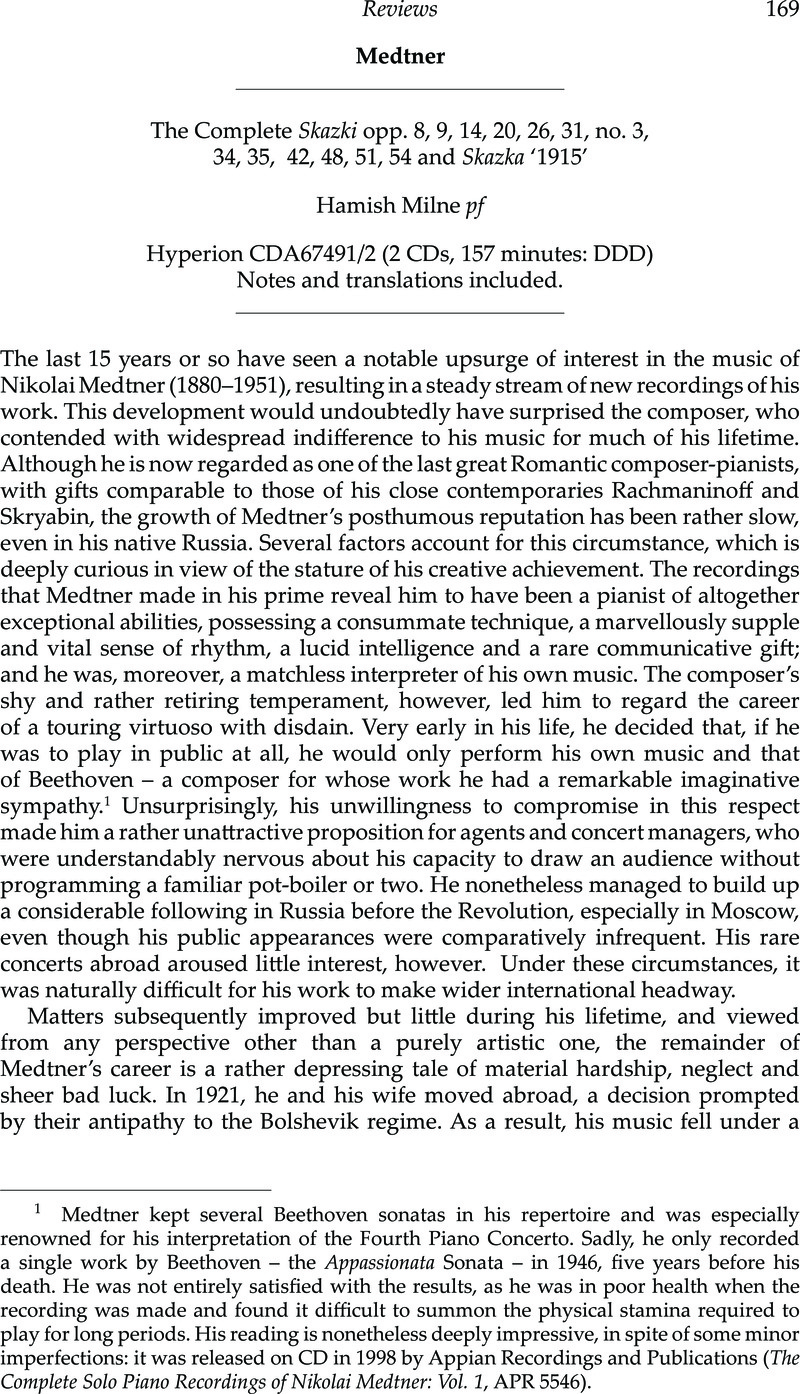No CrossRef data available.
Published online by Cambridge University Press: 13 April 2011

1 Medtner kept several Beethoven sonatas in his repertoire and was especially renowned for his interpretation of the Fourth Piano Concerto. Sadly, he only recorded a single work by Beethoven – the Appassionata Sonata – in 1946, five years before his death. He was not entirely satisfied with the results, as he was in poor health when the recording was made and found it difficult to summon the physical stamina required to play for long periods. His reading is nonetheless deeply impressive, in spite of some minor imperfections: it was released on CD in 1998 by Appian Recordings and Publications (The Complete Solo Piano Recordings of Nikolai Medtner: Vol. 1, APR 5546).
2 For official Soviet attitudes to Medtner's music, see, for example, Paperno, Dmitri, Notes of a Moscow Pianist (Oregon: Amadeus Press, 1998): 52 and 80. Medtner was reviled during the infamous campaign against musical ‘formalism' inaugurated by Andrei Zhdanov in 1948 and, as Paperno points out, his posthumous rehabilitation in the USSR came about largely through the courageous advocacy of his work by Emil GilelsGoogle Scholar.
3 Metner, Nikolai Karlovich, Muza i moda (Paris: Izdatel'stvo ‘Vozrozhdeniye’, 1935; reprint London: YMCA Press, 1978).Google Scholar
4 Myaskovsky, Nikolai, ‘N. Metner: Vpechatleniya ot ego tvorcheskogo oblika’ (N. Medtner: Impressions of his Artistic Personality), Muzïka, 119 (1913); reprinted inGoogle ScholarShlifshtein, S., ed., N. Ya. Myaskovskiy: Sobranie materialov v dvukh tomakh, vol. 2, 2nd ed. (Moscow: Izdatel'stvo ‘Muzyka’, 1964): 11–25; 115Google Scholar.